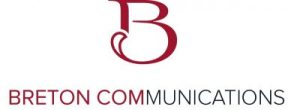By JoAnne Sommers
 It’s a truism that cash flow is the life-blood of business. Your company can usually survive for a time without sales or profits but if you don’t have enough cash to pay your suppliers, creditors or employees, you’ll soon be out of business.
It’s a truism that cash flow is the life-blood of business. Your company can usually survive for a time without sales or profits but if you don’t have enough cash to pay your suppliers, creditors or employees, you’ll soon be out of business.
Cash is king regardless of business size, says Nancy Harris,Richmond, B.C.-based vice-president and general manager of Sage Simply Accounting (becoming Sage 50 Accounting, Canadian Edition, in October 2012). However, she adds, “it’s sometimes more difficult for smaller businesses to develop good cash practices because they are often stretched very thin.”
Cash flow problems are the number one contributor to business failures, according to David Wilton, director of small business for Scotiabank inToronto. “Even a profitable business will fail if it doesn’t have the cash to pay for expenses when they fall due.”
That’s why it’s essential to ensure that your company’s cash flow is as predictable as possible, says Wilton, who adds that the first step is to create a cash flow plan. Scotiabank offers an interactive Cash Flow for Business™ tool on its Growing for Business website that allows you to analyze your cash flow situation and create sound projections. By documenting the anticipated receipt and expenditure dates of cash, you can determine whether you have a positive or negative account balance at any given time.
“Look ahead at least 12 months and try to anticipate the ebbs and flows of cash entering the business,” says Wilton. “Map that out against your anticipated expenditures for fixed items, including rent, wages and lease payments, plus variable expenses, such as inventory. That allows you to calculate your net cash position.”
Harris recommends that you engage a professional, such as an accountant, early in the process. “They can tell you how to put together a budget that will provide a lot of insight into your situation via cash flow projections, sales, and reports that show what’s overdue and could be collected. You can run inventory reports and see what you have on hand, what has been selling and what hasn’t. That way you’re not over-ordering things that don’t move quickly.”
Using the services of a professional frees you up to do what you’re good at, she explains. “Small business owners are usually passionate about their businesses but managing their finances may not be a strength. If you have an accountant to help keep your books straight, it frees you up to focus on what you enjoy – marketing, sales and finding new customers.”
Here are some tips that will help you to avoid cash flow crises:
• Budget Proactively
Proactive planning helps by creating a formula for knowing how much cash you should have on hand, based on the ebbs and flows of your business, says Harris.
“Determine your annual budget, then factor in seasonality,” she explains. “That allows you to forecast when times will be tight from an inflow perspective. Then you can manage your cash accordingly, stockpiling money when you’re busier to help when things are tight.”
• Invoice Promptly
Cash collection calls can be overlooked when you’re busy but you should avoid letting receivables get out of step with payables, says Harris.
Prepare invoices as soon as you deliver goods or services to the customer. If you wait to prepare your invoices at the end of the month, for example, you may be adding as many as 30 additional days to your cash flow conversion period.
• Accelerate the Rate at Which Cash Enters Your Business
One way to do this is to make sure you’re set up to accept both credit and debit cards. That provides immediate payment, minus the card issuers’ fees. By getting the cash right away, you don’t have to borrow while awaiting payment.
• Investigate Credit Worthiness
If you decide to set up accounts receivable, get a credit history for anyone who wants to charge purchases and decide whether you’re willing to risk not being paid.
• Pay on Time (But Not Too Soon)
The flip side of cash flow is expenditures, says Wilton. Check suppliers’ payment terms and determine when payment is due, then use an automated banking process to pay on the due date so you’re not subject to late penalties. Waiting to pay until the due date helps keep your cash flowing.
• Have a Backup Plan
Prearrange credit in the form of an operating line of credit and/or credit cards before you need it. Many business people enhance their likelihood of success by making available personal resources in the form of cash contributions and loans.
“You are best equipped to handle cash flow challenges when you make arrangements in advance,” Wilton says.







